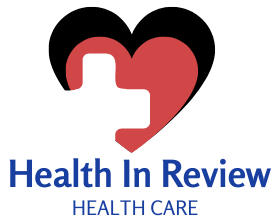Maintaining a healthy body and mind requires a proper mix of essential vitamins, minerals and nutrients in your food. Such intake is only possible through a nutritious, well-balanced diet.
A balanced diet is inclusive of all the food types. Such foods include fruits and vegetables, protein such as meat, fish and eggs, carbohydrates like starchy foods (pasta, rice or bread) and non-fatty dairy products. On the other hand, moderation is key to maintain a balance, this includes reducing the intake of sugary and salty foods.
Protein
Other than carbohydrates and fat, protein is a macronutrient that our bodies require in order to produce energy and foster growth. Also, protein aids in the management of weight by strengthening and maintaining muscle mass.
To maintain a healthy body, one must consume at least 150 grams of protein on a daily basis. Soy products, beans, lentils, and nuts mentioned above, as well as lean poultry, pork, fish, and other white-meat sources are great sources. Crucially, processed meats contain high sodium content making bacon, sausages, nuggets, or ham not heart-friendly and should therefore be avoided.
Our nutritional intake consists of raw foods along with protein in moderation and guidelines are to be followed through combining all these factors effectively. A national feeding guide on how to meet one’s nutrient expectations goes hand in hand with eating, and all the recommended portions needed to thrive on a balanced diet. Skeptical of national average recommendations, the most debated general advice Dietitians follow in the United States is MyPlate, which clearly recommends filling half of your plate with grains, vegetables, dairy, and fruits. MyPlate works as a clear depiction of people’s food habits as the culture here does promote supplements by encouraging natural places to not eat and filling up with fruit shakes, weight loss training, or automated juices. Shifting the lens to carbohydrates, they are biofuels, constituting a loss of structural attention when intertwined along with complex supplements, these simple things are the foods we indulge in day to day life. All food that gets processed consumes a lot of energy and dissolves into sugar, placing our energy reserves at risk of the constructive banner of agitation. Foods we eat along with our brain dissolve the elements of nutrients required, enabling glucose to produce ATP that fuels the lungs, heart and our muscles.
A well-balanced diet includes both simple and complex carbohydrates. Whole grains, starchy vegetables, and beans and peas are some of the more nourishing sources of carbs. Such sources have a fiber content that not only aids in regulating blood sugar cycles but also boosts satiety levels.
The benefits of balanced nutrition are numerous, including controlling weight, reducing the risk of diseases, increasing energy and vitality, improving digestion, and ensuring proper lifestyle management, as well as helping to mitigate chronic diseases like heart disease, diabetes, and cancer.
Move on from the refined processed sugars and turn your attention to complex carbs. One should always thoroughly look through the Nutrition Information Panel for items such as candy, cookies and sodas as they usually contain added sugars. For the people who love to have a Lopez or a Cot increase, it is preferable to go after chocolates with very low added sugars and dried fruits or canned fruits with no or minimal syrup. You can still enjoy your favorite sweet delicacies without compromising your sweet tooth, all that is required is that you compell yourself to make healthy choices most of the time.
Fats
A rationally balanced diet also nourishes the body while controlling the weight and reduces the chances of vitamin, mineral and protein deficiency, heart ailment, cancer, Type 2 diabetes, and obesity. There are several other advantages too including better brain function, improved bone health, and increased immunity.
A diet which is balanced should also contain foods from every food category including vegetables and fruits, whole grain, small portions of meat, and protein, and dairy and non-dairy products. It is also permitted to add some fat but in little amount such as processed food high in fat content and sugary drinks should be avoided.
It has been demonstrated that substituting saturated fats with a mixture of unsaturated fats can serve to lessen total cholesterol concentrations while potentially promoting weight loss. This helps those who want to lose weight to do so more effectively.
Of course, all fats are calorically dense, and should be included in diets in adequate amounts. There are certain types of fat, like nut butters, which provide an excess caloric intake, while a diet that is too rigorous is often hard to comply with as such a diet does not allow for the possibility of enjoying delicious treats every once in a while such as sweet cookies or soft drink. Specialized individuals including those with conditions such as Celiac disease and gastroparesis need to reach out to qualified dietitians as such an approach allows for both adequate nutrition intake and workout incorporation, thereby ensuring good health in the long run.
Minerals
The body relies on minerals for bone strength, muscle function and normal blood clotting as well as fluid balance and nerve impulse transmission Minerals are micronutrients because small amounts are needed but yet are of great importance to health; examples of micronutrients are calcium, phosphorous, magnesium and potassium found in many food sources such as yogurt, cheese, milk and wholegrain breakfast cereals; in addition they are usually in leafy green vegetables, nuts and seeds as well as fish poultry and lean meat products.
It is quite common for the diet to be satisfactory enough to be able to provide us with all the vitamins as well as minerals that we require but certain individuals may be at risk of deficiency. Because vitamins and minerals are situated in different types of foods, it is important that we eat a variety of each food group every day.
Enlarging the intake of certain minerals can be dangerous. Iron toxicity can be encountered when intake through supplementation is too excessive (47). Considering vitamin and mineral intake, food remains the most ideal source, particularly fruits, vegetables, whole grains, low-fat dairy products and white meat, while supplements should only be taken when one is advised to by one’s healthcare provider.




